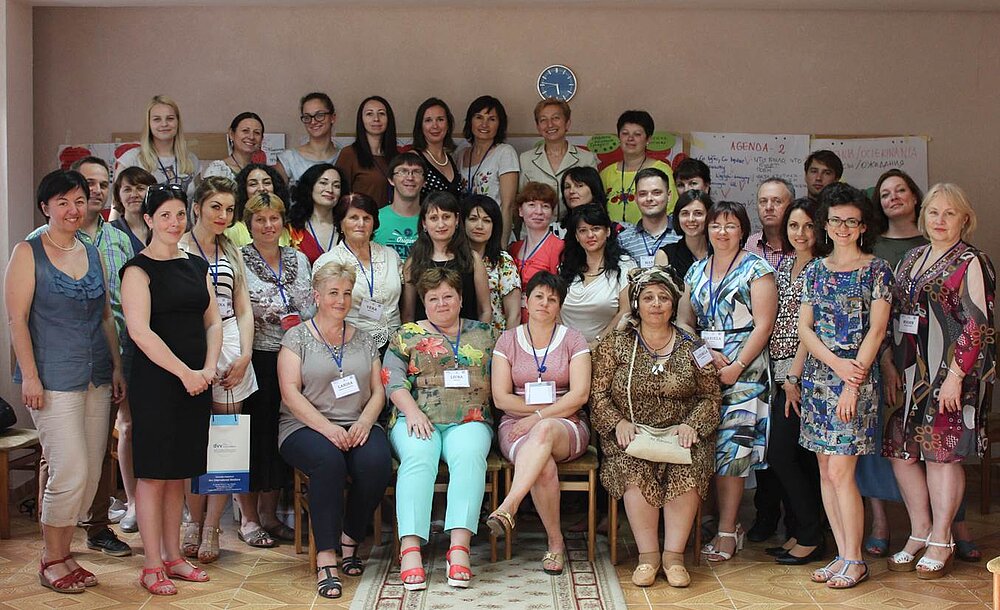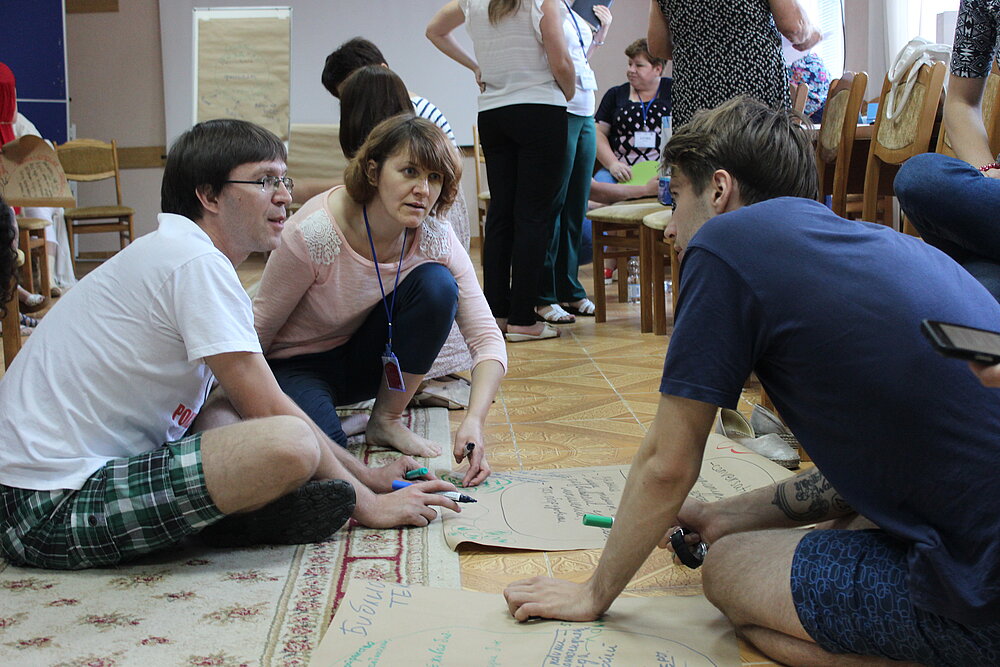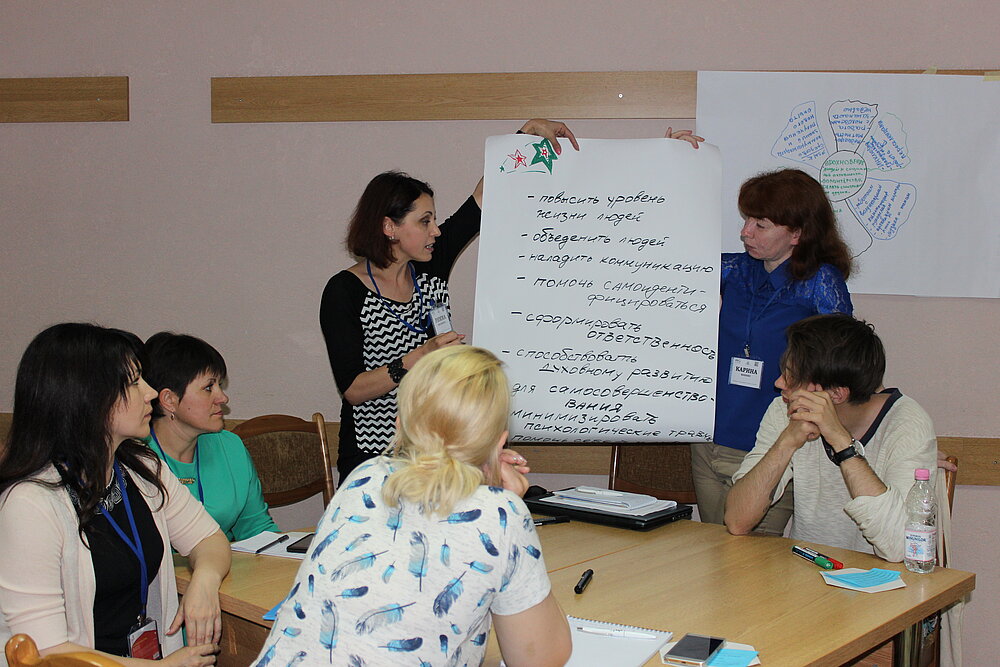What is sociocultural animation? How, who and for what it can be used? How to ensure the sustainability of socio-cultural initiatives? Participants were looking for the answers on these questions during the three-day workshop session "Socio-cultural animation", which took place from 22 to 24 June 2017 in Chisinau within the project "Learning community - transformation of conflicts in Ukraine and Moldova through active public participation".
In the first two days project managers, librarians, trainers from Moldovan and Ukrainian mini-projects were dived into the world of socio-cultural animation together with a Polish trainer, a representative of Kashubian Folk High School, Sulisława Borowska.
As Sulisława points out, socio-cultural animation gives people an impulse for changes, it motivates and empowers, causes a desire to act. With its help, even the most passive communities awaken and start their movement. Perhaps, at first, they move slowly and uncertainly, like after a long hibernation, but thanks to the skillful and unobtrusive direction of the animators, they begin to move more and more firmly and purposefully. In the opinion of the participants, socio-cultural animation is intended to unite people, it creates conditions for growth and development, promotes personal and professional self-identification. "Socio-cultural animation makes life more interesting and tasty", – said Yuriy Usovich, project coordinator, NGO "AHALAR".
Participants discussed methods of socio-cultural animation and talked about the best practices of their application during the workshop. Working in small groups and discussing numerous festivals, exhibitions, forums, performances, art-picnics and other cultural and artistic events, participants exchanged their own experience of participating and conducting them. "Socio-cultural events allow to find resources and reveal the internal potential, which at first glance, may seemed completely invisible", - added Olena Kostrytsa, a library worker.
The presentation of Kashubian Folk High School became an important part of the workshop. "Understanding the cultural identity of the local community is a driving force for quality change in the community and society", – said Sulisława Borowska. This idea gave an impetus for discussing practical tools and opportunities for activating Moldovan and Ukrainian communities.
The third day of the training was devoted to ensuring the sustainability of socio-cultural initiatives and mini-projects in general. The trainer was Sergey Lysenko, an expert in organizational development, the Center for Entrepreneurship Education and Business Support (CEDA) in Moldova. The participants analyzed the potential internal and external risks associated with project initiatives and developed a detailed action plan to prevent and eliminate them working within the project teams.
This workshop has become a creative and communicative platform for project teams. Participants noted the relevance of raised topics and the practical significance of applied methods. "The training has come to the end, but the project activity is just beginning, and it is great that in the imaginary suitcase I have valuable ideas and practical instruments that are just waiting to be implemented", - added Olena Shentseva, head of NGO "LIK".
The project "Learning community - transformation of conflicts in Ukraine and Moldova through active public participation" - united initiative of DVV International Ukraine and NGO Information and Research Center "Integration and Development", which is supported by the Federal Foreign Office.





